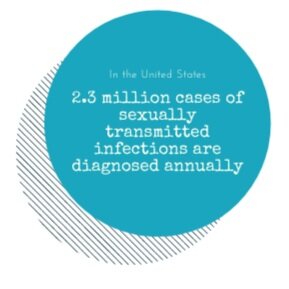
Our Mission
Plan A mobile clinics bring health care directly to underserved communities, with an emphasis on improving sexual and reproductive health. We serve all people, regardless of insurance status, income, or location, and ensure access to affordable, quality, and compassionate care.
Our first clinic opened in April 2021 and serves the Mississippi Delta region.
Details on our policies and practices, including financial documents, can be found here.
Our Focus
Reproductive Health
Women living in rural and non-metropolitan areas are less likely to receive reproductive health services than those in urban communities.
Nearly 45% of all pregnancies in the United States are unintended and rates of unintended pregnancies are almost 20% higher in Mississippi. Rates of teen pregnancy are on the decline but remain more than 50% higher in Mississippi than the rest of the nation. African American women in Mississippi are diagnosed with and die of cervical cancer and at nearly 50% higher than the national average.
The Plan A clinic is committed to reproductive justice and our providers are trained in a patient-centered approach to care.
Sexual Health
The rates of sexually transmitted infections (STIs) in the United States continue to rise annually - in 2018, the rates of chlamydia reached the highest level ever reported to the CDC and rates of gonorrhea reached a 27 year high. The state of Mississippi has the 3rd highest rate of STIs in the country and the highest rate of gonorrhea nationwide. Rates
Rates of new diagnoses of HIV are decreasing nationally, but have increased in recent years in certain counties in the Mississippi Delta. Young adults ages 20-29 account for more than 40% of new diagnoses in Mississippi. The CDC estimates that 1 in 7 HIV positive individuals do not know their status and are in need of testing.
Primary Care
More than 26 million Americans are uninsured, with millions more reporting limited access to health care. Consistent primary care is key to preventing serious illness, but many children and adults lack access to basic screening. Screening and monitoring is essential to diagnosing and treating people with these conditions and improving their overall health.
Working in partnership with local brick and mortar clinics, we ensure that patients have referrals to primary care providers who can manage their ongoing care.
Research and Evaluation
As part of our work, we also want to highlight the impact that mobile clinics can have in improving access to reproductive health care. To do that, we carefully evaluate our program looking at factors such as number of patients who receive care, what services they receive, and whether they would have received care if we had not come to town. We are also able to look more specifically at several health issues that are particularly relevant in the Delta and rural communities. All of our work is IRB-waived which means it was submitted to an ethics review board and found to have no to minimal risk.Our evaluation is done anonymously with results reported back to the community - healthcare can only improve when we all understand the problems and solutions. Specifically, we are looking at:
Whether mobile clinics increase access to care in rural communities facing barriers to access to reproductive and sexual healthcare.
Whether people in rural communities who use depo-provera (the birth control shot) prefer to receive it in the clinic or take the at-home shot, which eliminates the need to travel to a clinic for birth control, a major barrier to care.
Whether a mobile clinic can increase use of the HPV vaccine in adults who were not vaccinated as children, addressing the fact that Mississippi has the lowest rates of HPV vaccination and the highest rates of death by cervical cancer in the country.
We never, under any circumstances, offer anything experimental to our pateints - we are evaluating the services we already provide to make sure we are doing our best as a clinic to meet the needs of our community. For more information, contact Erin Rockwell at erin@planahealth.org.


